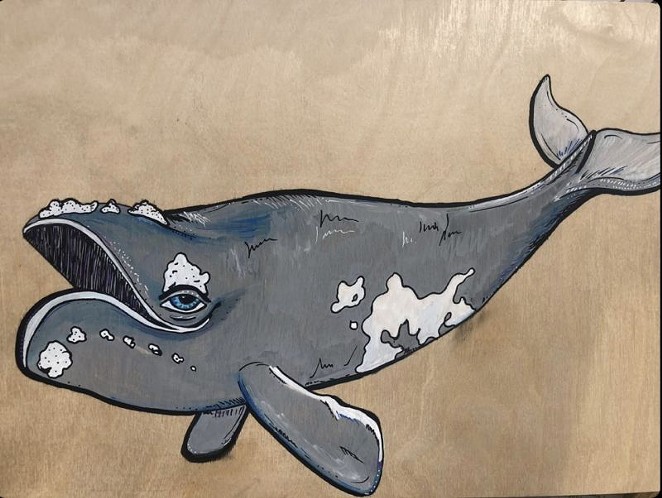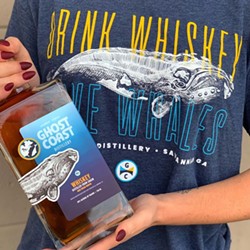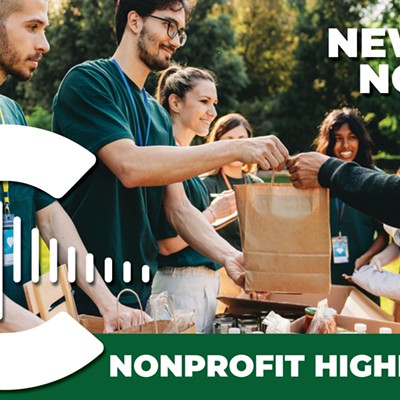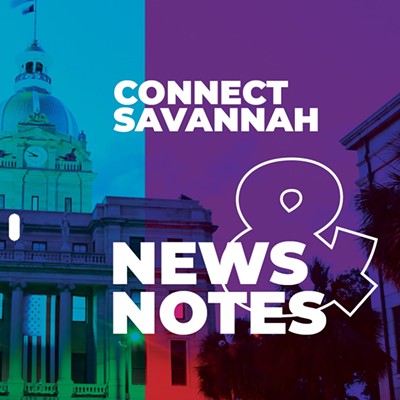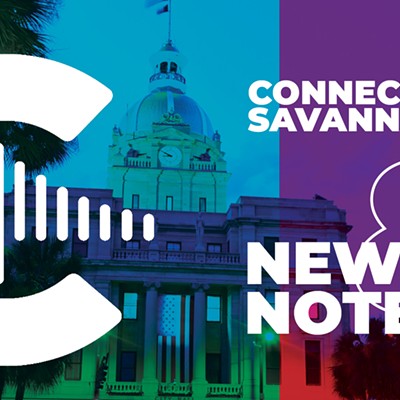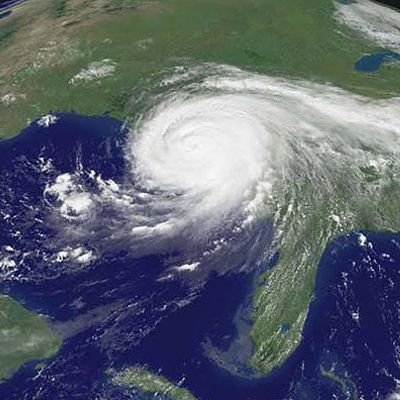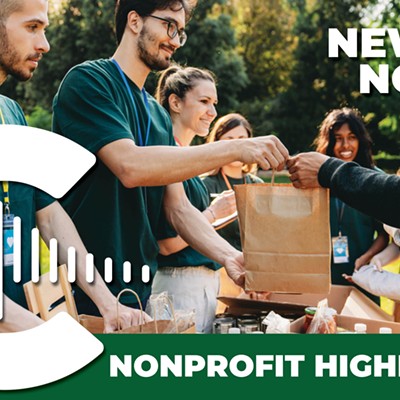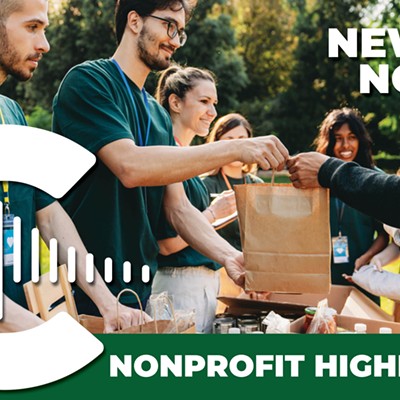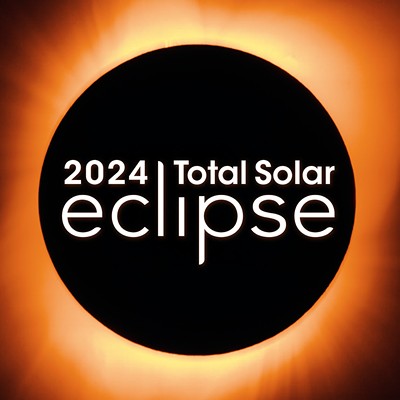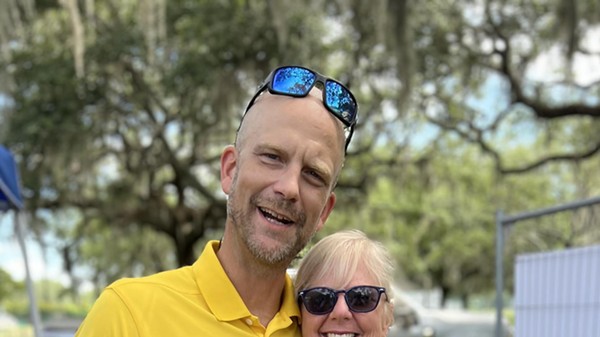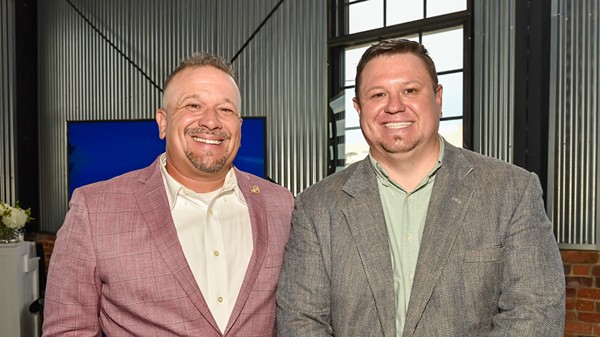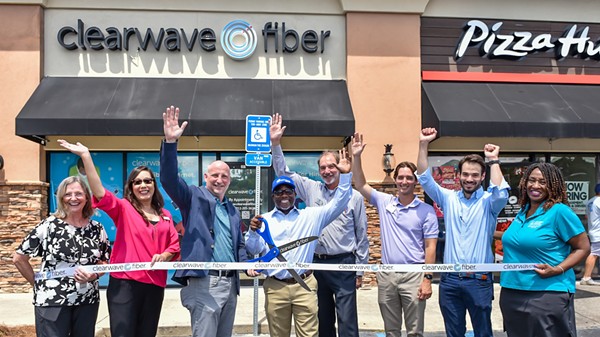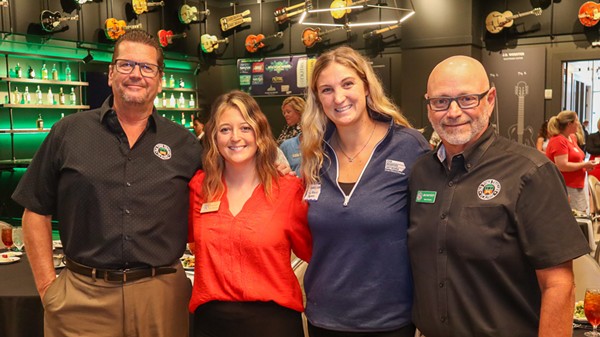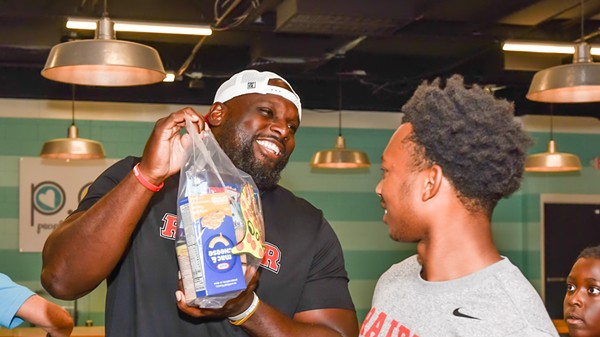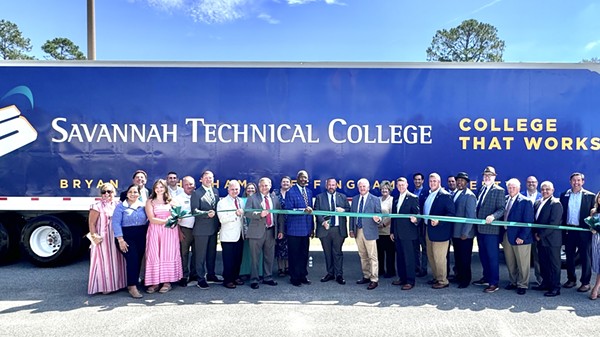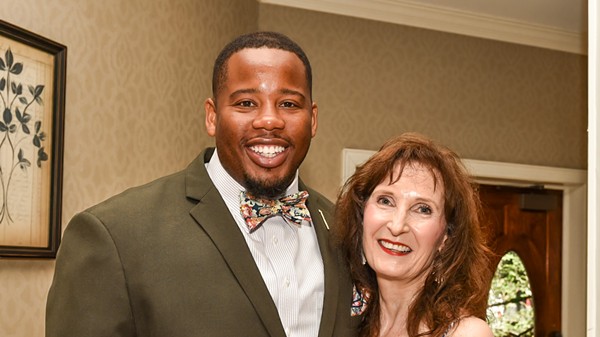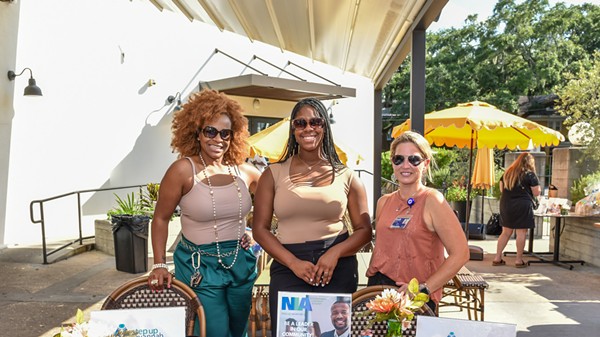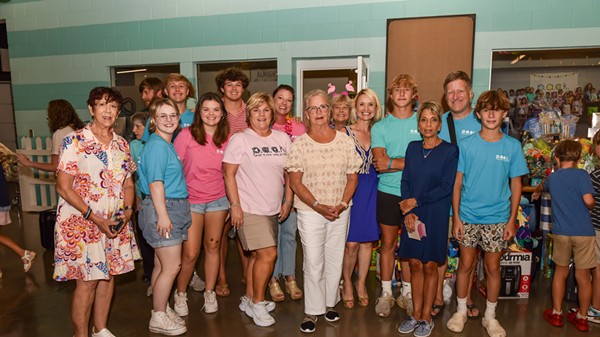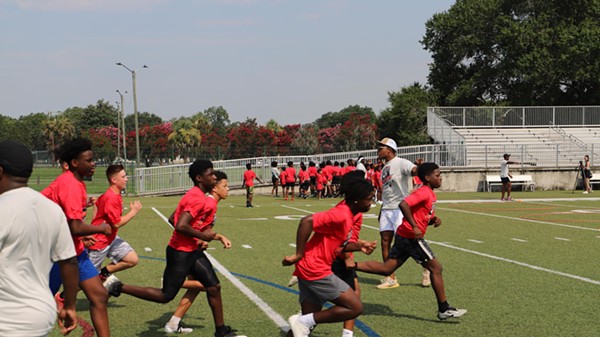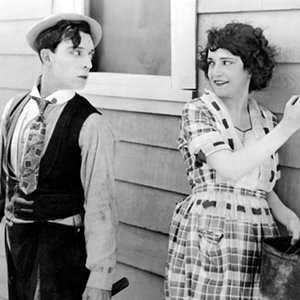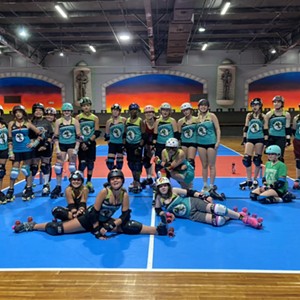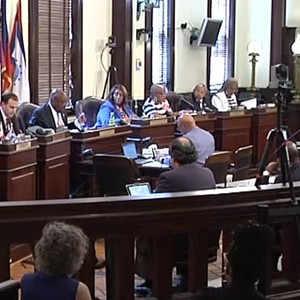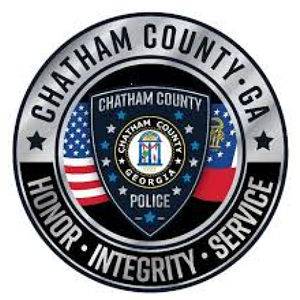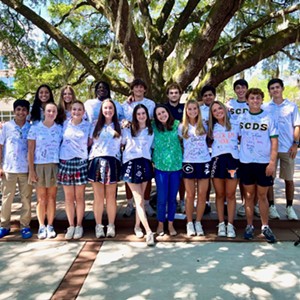ONE OF the most special things about living on the Georgia coast is our occasional neighbor, the North Atlantic right whale.
The whales come to our coast every winter to calve, which has earned them the designation of Georgia’s official state marine mammal. They are also incredibly endangered, with around 400 whales left in existence thanks to dangerous practices like offshore drilling and commercial hunting.
In an effort to spread the word about these extraordinary animals, as well as encourage their conservation, organizers host Whale Week, an engaging and informative series of programming.
Paulita Bennett-Martin, an organizer of Whale Week, is passionate about conservation and activism regarding our oceans and our North Atlantic right whales. We spoke with her last week.
This is the second year of Whale Week. What’s new this year?
We’re working with a pretty cool array of partners. The major groups that have partnered in Whale Week include Loop It Up Savannah and the Tybee Island Marine Science Center, and this year we also had an arts firm called W Projects who partnered with us. These groups are the businesses and organizations that really took the lead on specific programming for Whale Week, which includes classroom educational outreach visits. We do some family nights at different schools across Savannah, and we also hosted the Whales and Whiskey launch party at Ghost Coast Distillery. We’ll also be doing a little market pop-up at First Friday [at Sulfur Studios].
The goal with Whale Week is really to get people out and engaged with the history of the North Atlantic right whale, make them aware of the threats the whales face, but also provide them with the right information about ways they can take action in whatever form they want to, whether that’s going and speaking with representatives or to do more protection for the whales. Some people are inspired to create art to tell the story of the North Atlantic right whale. The idea is just to increase the awareness.
The North Atlantic right whale is obviously very important to Georgia. It’s our state marine mammal. A large number of them come here to have their calves every year. I think the North Atlantic right whale is an example of our relationship as coastal Georgians to the ocean. In a large way, this feeds into stewardship of our oceans and our relationship to the ocean.
What was really cool was last night, talking with a student who was asking about the whales and then realized he was born here and the whales were born here. It was a really interesting moment where he was like, “That’s so cool! Who did they go with?” I said, “Well, you know, they stay with their mother for a considerable amount of time to get nutrients, to be fed. So that’s probably the closest bond the right whale has in the ocean.” And this little kid said, “It’s just like us.”
That right there was a moment. We are no different; our lives are so similar in so many ways. For us in coastal Georgia, I feel like the right whale is just a very unique story. We’ve been involved in the conservation of this whale for decades. Now that there’s been more issues, between 2017 and 2019 we’ve lost 28 North Atlantic right whales. So [Whale Week] is important, this message is incredibly timely to what’s actually happening with the species in the ocean now.
I have to wonder how you keep doing this work. Like, the conservation efforts have been so far-reaching that even children understand how important the North Atlantic right whale is, yet that’s not translating to any policies in terms of offshore drilling or other protection efforts. I have to imagine it’s frustrating for you to keep having to convince people of something that feels so obvious. How do you do that?
The way I see that challenge is, I’m completely motivated by the ocean. It is my singular passion, and I can’t anticipate that everyone else is going to feel the same way. But once people do connect with the ocean, the outcomes are usually pretty remarkable. When we think about protecting the things we love, that kind of protection comes in many forms. That’s why I always try to connect people with many layers of the story. With Whale Week, you can connect with the whales through the arts or through conversations and panels and expert discussions.
Or whiskey.
Or whiskey! But when you tap into the thing you’re most likely to do, you’re possibly going to be more motivated to do something to protect the thing you love. There are certain things I don’t enjoy doing, and there are certain things I love doing. So if I can do that in order to protect the things I love, then I will.
I think that with creating or enabling ocean stewardship through building more awareness, it’s not just because we’re protecting the ocean, it’s also because the ocean is providing to us. So many people have many, many memories on the sea that are not necessarily quantifiable in what they give you, but they provide so much healing. And they’re also a gigantic realm of curiosity, which inspires creativity, inspires sciences, inspires our ability to create knowledge in the future. It’s just very profound.
And the same way I think a lot of people identify with the bald eagle because it’s strongly a symbol of freedom, the whale is Georgia’s symbol. How we dissect that is for each person to do, but it definitely is special to us. And what does it say about it just within this one species? How we move forward in protecting the North Atlantic right whale speaks volumes about us as a community, within the state of Georgia and within our coastal areas.
You spoke on the power of people using their strengths to help, but tell me how people can get involved.
I’d say seeking out and leading ocean conservation, both these national groups like Oceana and state leaders like the Georgia Conservancy, and looking at what they’re working on around whale conservation. They’ve often got petitions or different asks of the public to take action, so that’s a really important first step: identifying the people working specifically on North Atlantic right whale or large whale conservation. These organizations will often have tools already prepared for citizens to take action, or at least templates, which makes it super easy.
The other thing I think that anybody can do is communicate with any of your elected officials, whether it’s at the local scale or the national scale, and communicate how important this whale is to them. Because it may not be tied directly to a specific policy at that moment in time, but it’s about making sure they’re aware that people care about this species so when the opportunity arises, they do what they can to protect them.
There is a bill now in Congress and we’re looking for our Georgia representatives and certainly Senator Purdue to support it, but it’s called Save the Right Whale Act.
What does it mean to you to have so much support for the whales?
It’s inspiring to see local businesses, statewide NGOs and a national/international NGO support Savannah’s own whale initiatives. I know that’s dorky; a lot of people are like, “So what?” We’re doing this and we’re hoping it continues to grow.
Whale Week is a very local effort between these partner groups and I am just one of the people helping to organize it, but at the same time it’s giving that boost from these organizations that are out there doing a lot of work at that federal and statewide level. It allows us to get attention and support from them. I was really impressed this year to see so many people step up and say, “We’re going to help out.” People should learn about the whales. It’s not an insignificant issue.
What’s the significance of the date of Whale Week?
Well, we have a whale coming to town [laughs]. No, the calving season begins in December. Sometimes they’ll show up a little earlier, like last year we were lucky to see them as early as Thanksgiving weekend. We basically look for available dates in December and we didn’t want it to get pushed back too far to the holidays, so we wanted it to be timed with calving season. Calving season doesn’t change, we have to do it in December, so that’s how it came to be.

